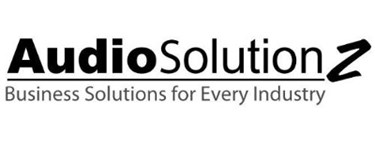Hydraulic Fracturing Wastewater Reuse - Challenges, Opportunities And Management

Shale gas exploitation by the means of hydraulic fracturing has made the headlines for the right and wrong reasons. With the already significant fracking industry set for further expansion in the US, the demand to process the large volumes of produced wastewater is mounting.
Durham, NC /PRNewswire-iReach/ - The number of hydraulic fracturing (also known as fracking) shale oil and gas wells in the United States of America and across the world continues to increase. The Bakken Shale formation alone, which is located in North Dakota and Montana, contains 15,000 hydraulic fracturing wellheads, with another 20,000 in the pipeline.
The US has a significant amount of oil and natural gas which are commercially reachable, all because of advances in horizontal drilling and hydraulic fracturing technologies. The advent of hydraulic fracturing wells has led to the stress on surface water and groundwater supplies from the withdrawal of huge volume of water used– needing up to one million gallons (3,780 m3) of fresh water per wellhead to complete the process of hydraulic fracturing.
The growing volume of wastewater generated from fracking wells is equally important, needing disposal as well as recycling. Approximately 60 percent of the water injected into a wellhead at the time of the fracking process will discharge back out of the well shortly thereafter, as flowback wastewater. Consequently, it will discharge up to 100,000 gallons (378 m3/day) of wastewater. Hence, this wastewater needs to be captured, and disposed of or recycled.
As water is considered the base fluid and the biggest component used in hydraulic fracturing, it's critical in the task of operating and economics of shale oil and gas production. Water management challenges are impacting hydraulic fracturing to a large extent.
Fresh water and wastewater operating procedures existing since the late 1990s are now experiencing stringent governmental regulations on water availability and disposal limitations. Such factors invoke oil and gas executives to simply think over current water utilization activities with regards to fracking, and use a more unified and longer-range perspective on the water life-cycle management.
Explore both the challenges and opportunities presented by wastewater reuse in the hydraulic fracturing process during a live webinar at AudioSolutionz.com by Dr Barry Stevens, the founder and president of TBD America, Inc., a technology business development consulting group.
Here's a sneak peek of the conference:
Hydrofracturing Wastewater: How We Produce It, How We May Abuse It and How We Can Use It
U.S. oil and natural gas producers who have been using hydraulic fracturing are discovering the untapped potential of wastewater reuse.
While reuse currently accounts for less than 1% of the 21 billion barrels of wastewater managed by U.S. oil and gas producers each year, this trend is now rapidly growing in favor of reuse. In fact, reports show 87% of the reuse in the Marcellus formation.
This trend is fueled by a growing number of challenges and some limited options that are associated with proper treating and disposing of hydrofracturing wastewater.
Irrigation, livestock watering, and various industrial applications are not considered an unattractive option because of the strict regulations and high treatment costs.
Treated hydraulic fracturing effluent discharged into the surface water is not quite a realistic option because of the questionable ability to cost-effectively meet regulations, the extremely high treatment costs, and negative public sentiment.
Plus, shale gas production usually consumes a great amount of an already scarce freshwater resource.
Reuse enables producers to reduce water management costs, lower treatment costs, lessen regulatory burdens, and conserve natural resources.
Register for this informative one-hour live webinar by Dr. Barry Stevens, in which he will dissect the wastewater reuse in the hydraulic fracturing process.
This session will cover:
- Concerns regarding terminology of : flowback water, produced water, reuse and recycling
- Challenges
- Process of hydrofracturing
- Basics of water management
- Basis of water pathway
- Beneficial and non-beneficial usage of wastewater
- Market drivers
- The cost analysis
- Federal, state as well as the local regulations For more information, visit http://www.audiosolutionz.com/energy-amp-environment/hydraulic-fracturing.html AudioSolutionz the country's leading online business-training platform that helps professionals of HR & Payroll, Banking and Finance, Construction and Housing, Transportation, Chemicals, Energy & Environment, Education, Leadership & Teamwork and Manufacturing in building and enhancing their skills. We invite industry veterans to share their vast pool of knowledge and insights with professionals through audio and/or video conferences.
Source: Audio Solutionz
Copyright 2014 PR Newswire. All Rights Reserved